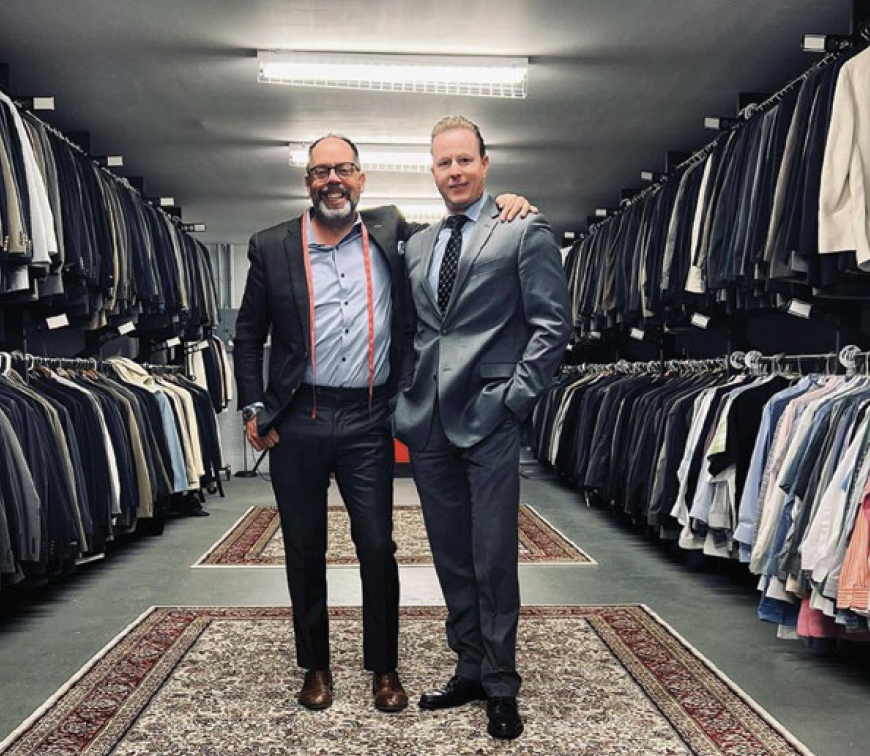
OUTFITTING MEN FOR SUCCESS
SHARP DRESSED MEN
There’s that old saying, “the suit makes the man.” But what if you can’t afford a nice suit? Christopher Schafer, founder of the custom clothing company Christopher Schafer Clothier, saw this need and responded by creating the nonprofit, Sharp Dressed Man. Whether at its boutique or through its mobile operation, The Sharp Dressed Van, men can shop gently used, fashionable business wear entirely for free. As Schafer says, “A change of clothes can change a life.”
Seventeen years ago, Schafer moved to London for his wife’s job. While he was there, he learned how to make custom suits. When he returned to Baltimore, he opened his own boutique operation, creating European-inspired custom clothing that meets each individual’s needs and style, from the traditional to the fashion-forward. After he made a number of new suits for a man who was a partner in a law firm, the client gave Schafer a bag of beautiful used clothes and asked him to find them a good home.
That bag of clothes was the inspiration for Sharp Dressed Man.
Since its founding nearly a decade ago, Sharp Dressed Man has outfitted nearly 13,000 people. The van, which can go to less served areas of the region like the Eastern Shore, can serve 250 people per trip.
Clients come from all backgrounds and are referred through partner organizations, like those who help returning citizens find employment after prison. Schafer shares the story of Jimmy, who was looking for employment after serving a 40-year prison sentence. He found a position at Johns Hopkins Hospital through Sharp Dressed Man, but also found a love of tailoring suits. Schafer taught Jimmy how to take custom measurements, and for the last nine years Jimmy has been Schafer’s most devoted volunteer.
The nonprofit, which is 100 percent volunteer run, is Schafer’s way of paying it forward. Prior to learning the tailoring trade, he was a musician—with the rock ’n’ roll lifestyle to match.
Now 20 years into his own recovery, Schafer says Sharp Dressed Man keeps him grounded. And he well remembers his own struggle to find nice, affordable clothing. “When I was down and out and broke, buying clothes for interviews was hard,” he remembers. “I was fortunate I had four brothers and could borrow clothes from them.
“Recovery is based on the idea that if you want to keep it, you need to give it away,” he continues. “I’ve grown this business off the idea that what you give away, you receive. And it works.”